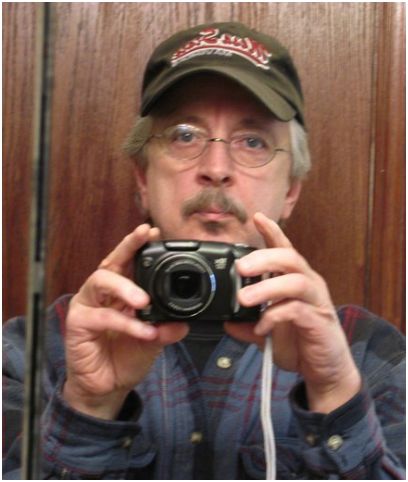what is your name?
My name is Allen Learst.
how would you describe what you do?
I’m a writer, so my work when I’m working well, is a solitary endeavor. I have written essays and poems, but my real passion is the short story.
what are you currently working on?
I just finished a novel and a small collection of short stories that I’m sending around for publication. The novel, Bonefish, has been rejected 13 times (lucky number), and the short story collection titled Places Part Dream is at a contest.
what has had the greatest influence on your work?
My friendship with the writer, Gordon Weaver, has had a significant impact on my work. He was my dissertation director in 1995 and we have remained friends since. He still reads my work and gives me writerly advice, which is invaluable. Other influences include reading and re- reading every short story that makes me say: “I want to do that!” and “Where does that power come from?” Those stories have been written by Tobias Woolf, Flannery O’Connor, Nathaniel West, Jim Harrison, and Alice Munroe.
what is the greatest misconception about you or your work?
I have written and published a lot of stories about Vietnam and some of the reaction has been that Vietnam is old hat as subject matter, but the truth is that war stories can never be exhausted because we keep fighting them, people keep dying, and the public continues to accept it, which is beyond my rationale. So I keep writing the stories to show how war changes us in ways we don’t understand and will never understand unless we are willing to reflect on the senselessness of it all.
what do you see as the main strengths and weaknesses of the medium you work in?
The strength of the medium is that, like any artistic pursuit, it cannot be exhausted. If you think about it, the short story is a relatively new form, maybe two, three hundred years old at most, and that’s young compared to the art of the novel or the art of poetry—and even those forms have not been exhausted. So I think the short story will be around forever—that is its greatest strength. If there is a weakness, it might be plot because there are no new plots; there is only the “how” of the story, which is far more important than the “what”.
how has technology impacted upon the work you do?
Wow. Technology is wonderful, and the internet is a marvelous research tool. I once wrote a story that took place in Key West. It’s called “A Place Part Dream” and was published in the Chattahoochee Review. I had only been to Key West once about 20 years before I tried to write the story and I needed some specifics about birds that hung out on the coast. So I went online and looked up Black Skimmers, which turned out to be a good bird to use in the story because it had metaphorical properties. My point is that I found what I needed to give the story its verisimilitude and it took a matter of minutes. What a great tool. I’ve done this many times for other stories.
what’s the greatest piece of advice you would like to pass on?
I teach writing so I’m giving students advice every day, but the single best piece of advice, and it’s already a cliché, is that if you want to be a writer spend your time reading every chance you get. It’s old advice, but it’s important. Also, don’t waste too much of your time reading “how to” write books. The best way to learn is to imitate the masters. They are your teachers. And at the risk of putting myself out of a job, I’ll just say you don’t need me to become a writer.
where can we find you online?
I don’t have a website, but I’m on Facebook and if you Google me, you’ll see what I’ve been up to.
what are you reading at the moment?
The Blind Assassin, by Margaret Atwood, Story by Robert McKee, Close Range by Annie Proulx, Shadow Country by Peter Matthiessen, The Farmer’s Daughter by Jim Harrison, and The Theory and History of Rhetoric by James A. Herrick.
what are you listening to at the moment?
Miles Davis, George Harrison
anything else we should know?
Like I tell my students, don’t give up. This works for everything in life.

Congratulations on the Leapfrog prize! I opened up my email this morning and was so excited to see the news that a former professor had done so well. I took several classes from you when I was an undergrad at Mesa, and I still use your advice. I’m still “killing my babies!”
Take good care, and again, Congratulations!
Full of helpful insights for the rest of us who write, Allen, and congrats. on your bravery in leaving behind blue-collar toil to launch upon the uncertain seas of creativity.
I enjoy your candid summations, and will now look out some of you War-inspired work.
I’ve asked for you to become an Fb Friend and hope you will say Yes once you have checked me out.